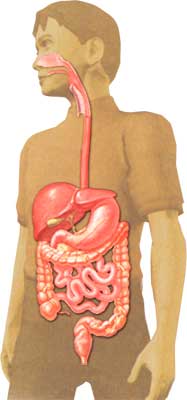Completion requirements
View
Introduction

- Feeding and swallowing difficulties are called dysphagia (dis FAY juh).
- Older adults are at risk when they have multiple medical conditions or take multiple medications with side effects causing swallowing problems.
- Swallowing problems can lead to poor health.
What You Should Know
 Causes of Swallowing Problems
Causes of Swallowing Problems
Feeding and swallowing difficulties may be caused by:
- Disease or injury to the brain or nervous system
- Some examples include: stroke, brain injury, spinal cord injury, Parkinson’s disease, Lou Gehrig’s disease.
- Structural changes to the face, mouth, or neck
- These may be the result of surgery or cancer.
Risks from Swallowing Problems
- Aspiration – food or fluid enters the lungs
- When the person shows no outward signs (e.g. cough or throat clear) it is called silent aspiration.
- Choking – a blockage of the airway
- Poor nutrition and hydration
- Chest infections, development of chronic lung conditions
Signs and Symptoms
- Choking and coughing when eating or drinking or immediately after a meal
- Food left in the mouth after swallowing
- Trouble chewing
- Effortful or painful swallowing
- Food or fluid spilling from the mouth or nose
- Feeling as though food is stuck in the throat
- Regurgitation or vomiting
- Congested chest, lots of phlegm, recurring chest infections
- Unintentional or unexplained weight loss
- Poor food and fluid intake
- Long meals/feeding times
- Lack of enjoyment in eating
When to Seek Medical Advice
- Talk to your doctor when you
- have swallowing difficulty
- are concerned about signs and symptoms
- suspect or observe related problems such as compromised nutrition or hydration, or recurrent or chronic chest congestion or infections
- want a swallowing assessment.
- A doctor’s order is required for a swallowing assessment.
- Your doctor will complete a referral form which is sent to a speech – language pathologist or swallowing program.
Tips for Safe Swallowing
- Your speech – language pathologist will provide you with recommendations based on your swallowing test results.
- A modified diet may be necessary. Solid textures and fluid consistencies may be altered.
- Exercises and / or swallowing strategies and maneuvers may help.
- Some general strategies while waiting for an assessment:
- Take or present food or drink when awake and alert
- Wear dentures and other aids, e.g. hearing aids and glasses
- Sit as upright as possible
- Place food within reach and sight
- Allow enough time to complete a meal
- Complete one bite or sip or swallow before taking the next
- Provide supervision and cueing when helpful
- If feeding another person, sit at eye level and present food or fluid at midline
- Monitor for signs and symptoms of difficulty
- Remain sitting for 30 minutes following the meal
- Maintain regular oral care
See Also
Link to Related Topics
Last modified: Wednesday, 27 April 2022, 9:19 AM